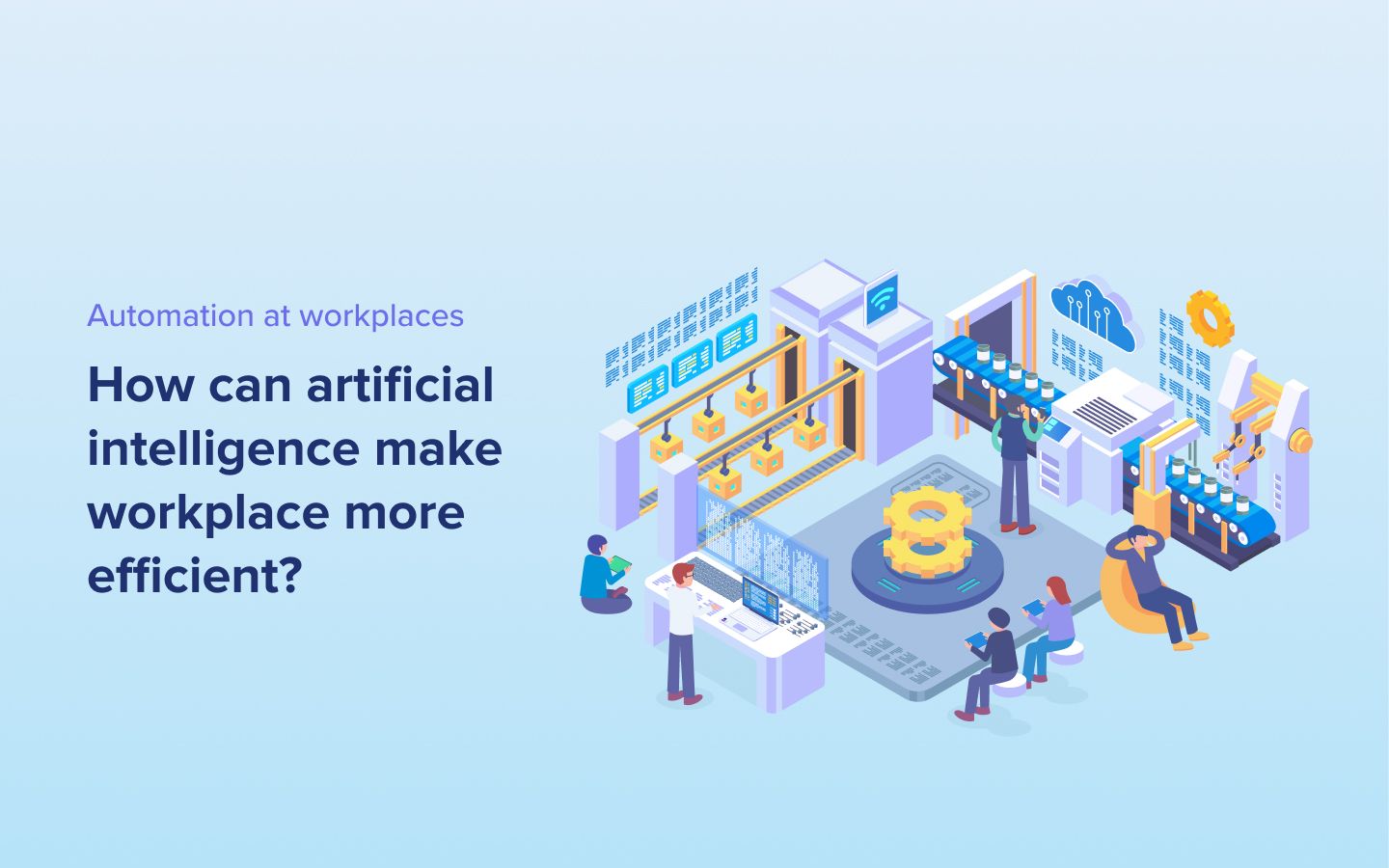With the ongoing COVID-19 pandemic, working from home has become commonplace across the world. The boundaries between work-life balance have disappeared as people have started to juggle between managing their households, children doing online schooling and their jobs.
According to American Psychiatric Association’s poll on COVID-19’s impact on mental well being in 2020, nearly half (48%) of Americans have reported being constantly anxious about the possibility of getting COVID-19 and more than one third (36%) said that the pandemic is having a serious impact on their mental health.
Organizations have understood the toll that the constant state of anxiety is having on their employees. Reducing manual tasks and repeated activities in business workflows has become a serious point of concern for businesses, to prevent the monotonous and stressful work from negatively affecting their employees.
How can artificial intelligence help employees?
Artificial intelligence has been drawing a lot of attention in the last few years of technological advancement. From huge spends and investments being made into developing AI that will simplify searching for content and using AI to improve detection of cancer to new APIs being released by banks, there’s a lot happening in the world of automation with AI.
Artificial Intelligence refers to using machine learning and smart technology that learns from data and is capable of understanding data in a way that enables it to provide suggestions, and detect fallacies. Artificial Intelligence won’t be replacing jobs, instead it will be taking over a lot of the time consuming tasks, allowing employees to focus on more important and strategic activities.
How will AI enhance productivity and work?
- Reduced manual tasks:
Automation will take over a lot of manual work like data integration, which will allow for easier transfer and access of data. This means that employees will spend less time looking around for information and organizing it. Lesser paperwork and fewer hours spent in time-consuming administrative tasks will eventually lead to lesser work hours and increased productivity. - Better insights:
With the advancements in technology and newer applications launching daily, algorithms are getting better and smarter at picking up on trends and behavioural patterns. Automation won’t just help in data integration, it’ll also make ways for data interpretation and better analysis of the information at hand. This means that employees will be able to focus on data that’s important. With automation, they will be able to filter out unimportant data and get statistics and insights, within minutes, that would normally take days or weeks to collate and organize. - More strategic tasks:
By taking care of the repetitive mundane tasks, automation will clear up schedules, allowing employees to focus more on making the more complex and creative decisions that are critical for the business. - Better opportunities:
The goal of technology is to improve human beings and help them explore better avenues. Advancements in technology will allow employees to build on new skill sets and explore more job roles with the flexibility of learning new things are becoming easier and more accessible.
Advancements in technology, in terms of APIs and integration, allow us to access data and applications in a more open and connected manner. It allows applications to “speak” with each other, giving humans more ease of access in managing their work.
There are numerous applications that can take over the tasks of scheduling, data sharing, generating invoices and a range of other administrative tasks common in business workflows. APIs and Artificial Intelligence are only going to get better, more streamlined with time and every industry is going to benefit by this. Employees will have to learn how to adapt to this shift and leverage themselves better.
You can try your hand at creating automated workflows using our Quickwork platform. To know more about automation, get in touch with us.








